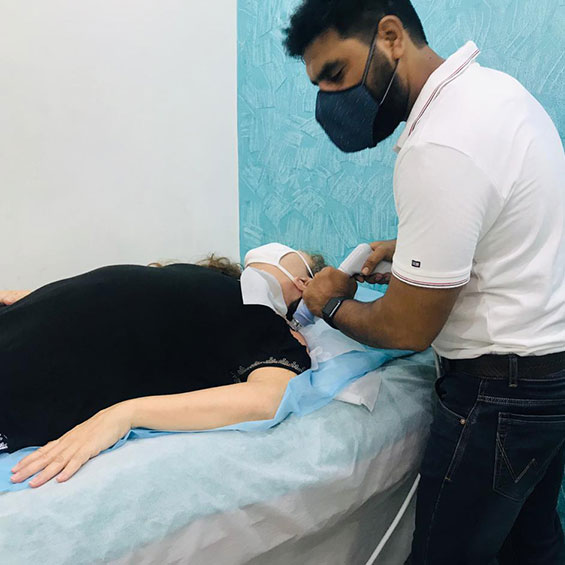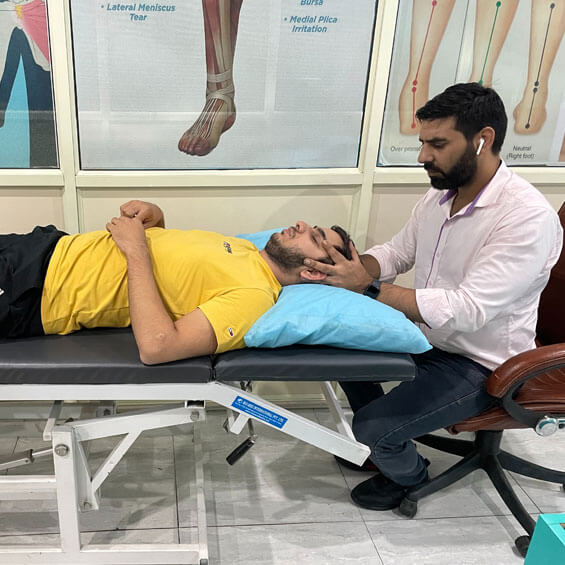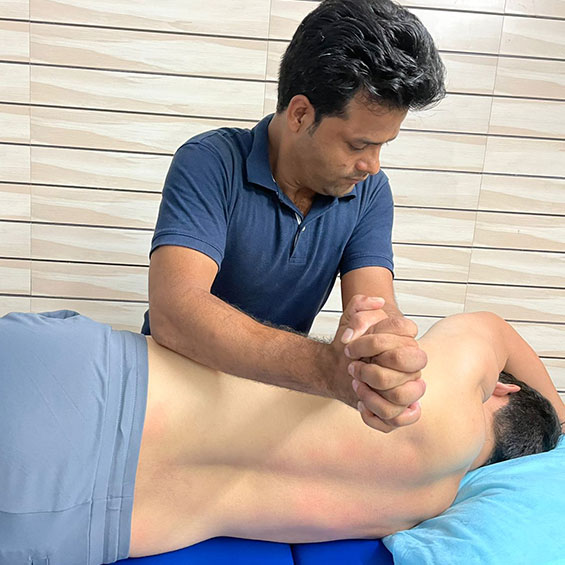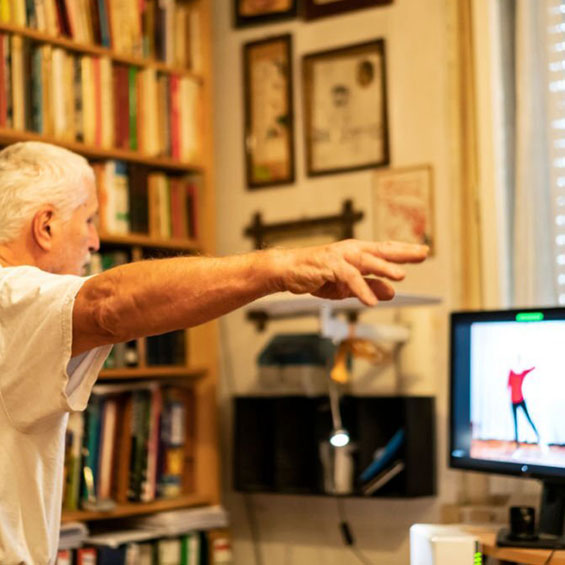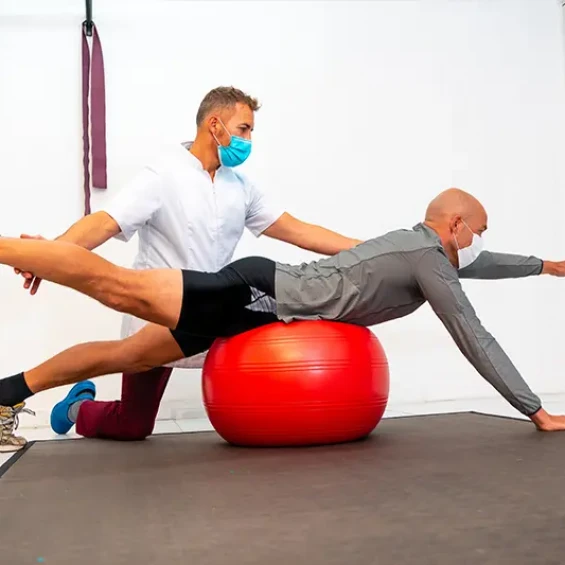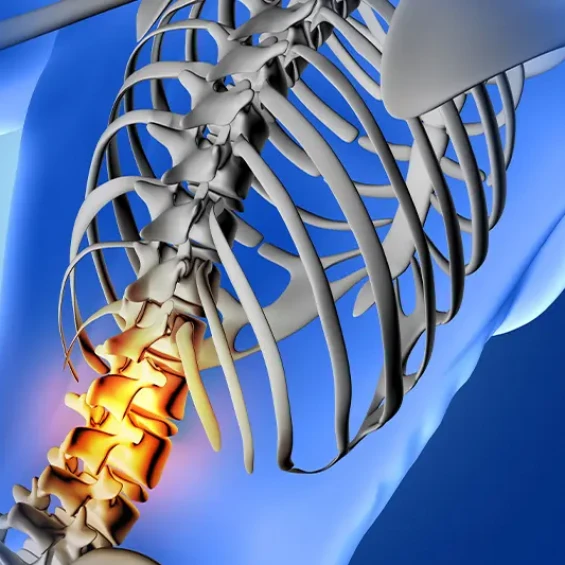Dry needling is a physiotherapy technique used to treat musculoskeletal pain. It involves inserting thin, sterile needles into the skin and muscle at specific points known as trigger points. These are hyperirritable spots in skeletal muscle associated with palpable nodules in taut bands. The goal of dry needling is to relieve pain, reduce muscle tension, and improve mobility by eliciting a twitch response from the targeted muscle, which helps to release the knot and alleviate symptoms. Unlike acupuncture, which is based on traditional Chinese medicine, dry needling is grounded in Western medicine principles and focuses on treating specific areas of discomfort.
Archives: Services
Post Type Description
Craniosacral Therapy (CST)
Craniosacral therapy is a gentle, non-invasive type of therapy where the goal is to improve the flow of cerebrospinal fluid by manipulating the base of the spine and the bones of the head. Originally derived from osteopathic concepts in the early 1900s, its goal is to reduce pain, tension, and dysfunction by allowing bones to return to their normal positions and lessening the load on the central nervous system. Soft touches are employed by practitioners to evaluate and enhance the craniosacral system’s balance and harmony, which is thought to have an effect on general health. In the medical profession, there remains disagreement over its efficacy and scientific foundation despite its widespread use for a variety of conditions.
Women’s Health Physiotherapy
Women’s Health Physiotherapy specializes in addressing the unique physical health needs of women across all stages of life. This focused branch of physiotherapy offers personalized care that encompasses pregnancy, postpartum recovery, pelvic floor disorders, and menopause-related changes. By employing a combination of hands-on treatments, exercises, and education, it aims to empower women to achieve optimal health, enhance their quality of life, and prevent future issues. From managing pelvic pain to improving urinary incontinence, Women’s Health Physiotherapy provides a supportive environment where women can openly discuss and address their health concerns, ensuring they receive the comprehensive care and attention they deserve.
Vestibular Rehabilitation
Vestibular Rehabilitation is a specialized form of therapy designed to alleviate problems caused by vestibular disorders. This therapeutic approach focuses on restoring balance and reducing dizziness symptoms that result from inner ear imbalances. Through a personalized program, patients engage in targeted exercises that retrain the brain to recognize and process signals from the vestibular system more effectively. Techniques may include gaze stabilization, balance training, and maneuvers to address positional vertigo. Vestibular Rehabilitation empowers individuals to manage their symptoms, improve their quality of life, and regain confidence in daily activities. It’s a compassionate pathway to recovery, emphasizing patience and gradual progress.
Therapeutic Massage
Therapeutic Massage is a method of manipulating the body’s soft tissues to relieve stress, promote relaxation, and improve overall well-being. Tailored to individual needs, it encompasses various techniques like kneading, stroking, and applying pressure to target areas, aiming to alleviate pain, reduce muscle tension, and enhance circulation. Beyond its physical benefits, therapeutic massage also offers a serene escape, allowing the mind to unwind and fostering a state of mental tranquility. By addressing both physical and emotional health, it supports the body’s natural healing process, encourages relaxation, and contributes to a balanced lifestyle, making it a holistic approach to wellness.
Tele Physiotherapy
Tele-physiotherapy represents the fusion of physiotherapy with digital technology, enabling patients to receive professional guidance and treatment remotely. This innovative approach utilizes video conferencing tools to conduct assessments, deliver personalized exercise programs, and provide education and support, all from the comfort of the patient’s home. Ideal for those with mobility issues, time constraints, or living in remote areas, tele-physiotherapy breaks down barriers to access, ensuring continuity of care. By leveraging digital platforms, it fosters a collaborative therapist-patient relationship, encouraging active participation in rehabilitation and promoting independence in managing health conditions. Tele-physiotherapy is a testament to the evolving landscape of healthcare, embracing flexibility and accessibility.
Strength Training Specialist
Strength training, also known as resistance training, is a form of physical exercise designed to improve muscular fitness by exercising a specific muscle or muscle group against external resistance. This includes a variety of techniques such as lifting weights, using resistance bands, or performing bodyweight exercises. The primary goal is to enhance muscle strength, endurance, and size. By applying a progressive overload, the body adapts to the increased demand, leading to improved muscle tone, bone density, and metabolic rate. Beyond physical benefits, strength training also boosts mental health, enhances performance in daily activities, and reduces the risk of injury, contributing to overall well-being.
Sports Physiotherapist
Sports physiotherapy is a specialized branch of physiotherapy that caters specifically to the needs of athletes and individuals engaged in physical activities. It focuses on preventing injuries, providing acute care, facilitating rehabilitation, and enhancing performance. Through a blend of techniques such as manual therapy, exercises, and advice on movement and function, sports physiotherapists help athletes recover from injuries, improve their physical strength, and optimize their athletic performance. This field combines an understanding of sports science with therapeutic practices to support athletes in achieving their peak physical condition and to assist in their swift return to sport following injury.
Spinal Injury Rehab
Spinal Injury Rehabilitation is a specialized program designed to aid individuals in recovering from spinal cord injuries, focusing on maximizing their functional independence and quality of life. This comprehensive approach integrates physiotherapy, occupational therapy, and emotional support, addressing the complex needs arising from such injuries. Through personalized treatment plans, patients are guided through exercises to strengthen muscles, improve mobility, and adapt to new ways of performing daily activities. The journey also encompasses education on lifestyle modifications and adaptive technologies, fostering resilience and autonomy. Spinal Injury Rehabilitation is a testament to human resilience, empowering individuals to navigate challenges and reclaim control over their lives with confidence and dignity.
Pre and Post Surgery Rehabilitation
Pre and post surgery rehabilitation refers to the specialized physiotherapy provided before and after surgical procedures to optimize recovery outcomes. The pre-surgery phase focuses on preparing the body for surgery, enhancing strength and flexibility to reduce recovery time. Post-surgery rehabilitation, on the other hand, aims to restore function, mobility, and strength lost due to the surgical intervention. Tailored to individual needs, this comprehensive approach facilitates quicker healing, reduces the risk of complications, and supports patients in regaining their prior level of activity. By bridging the gap between surgery and full recovery, it plays a crucial role in ensuring a successful return to daily life.



